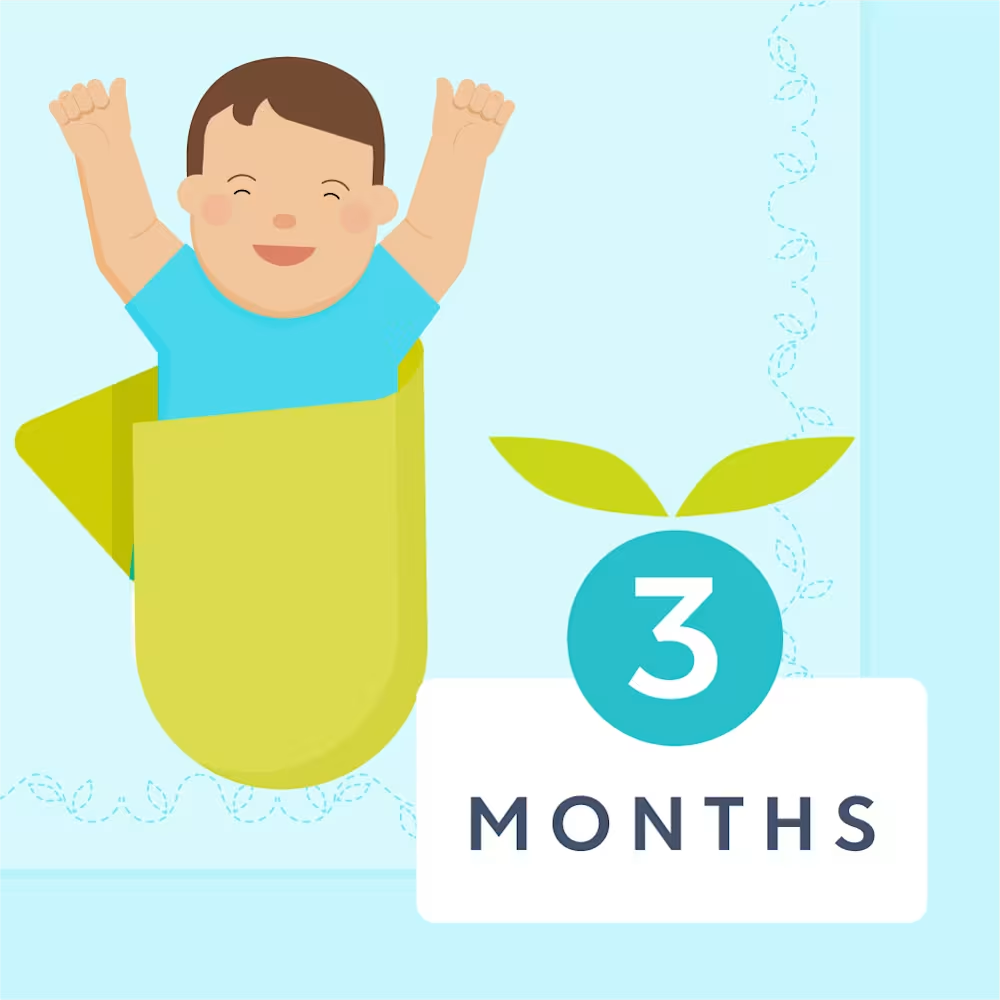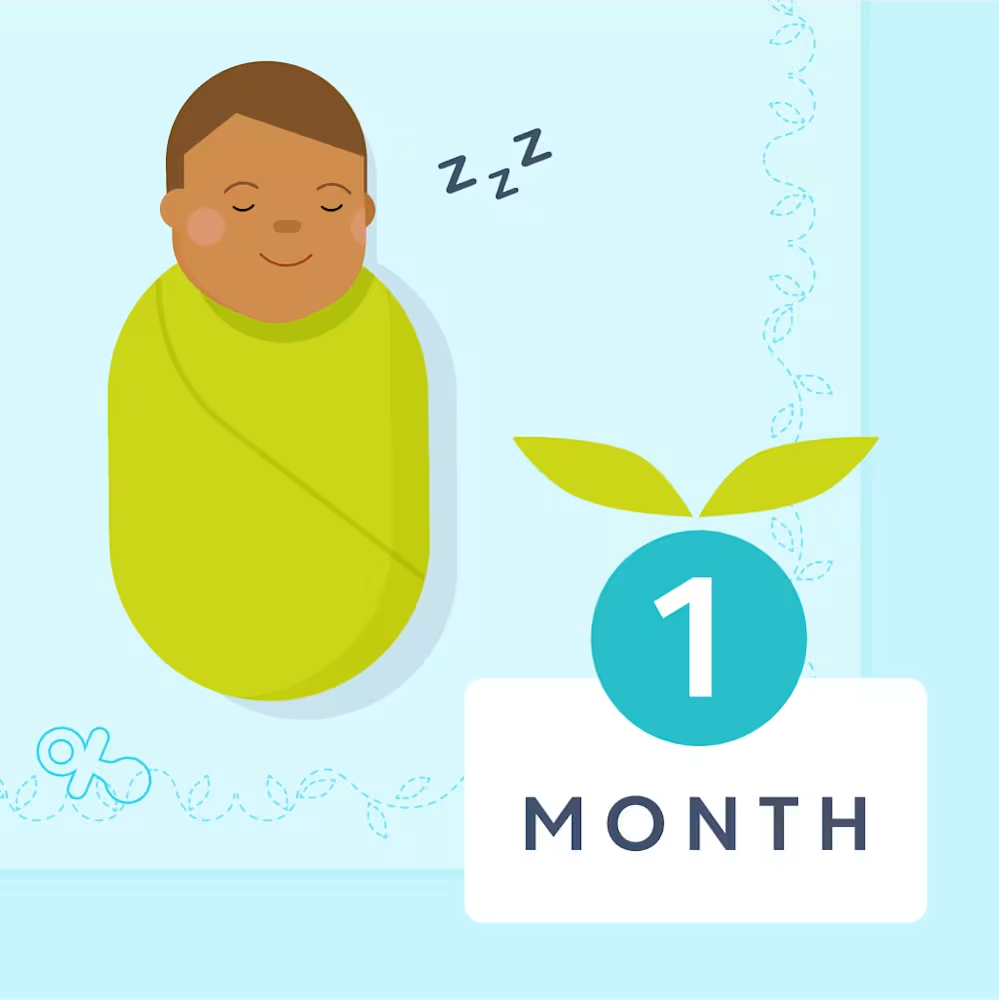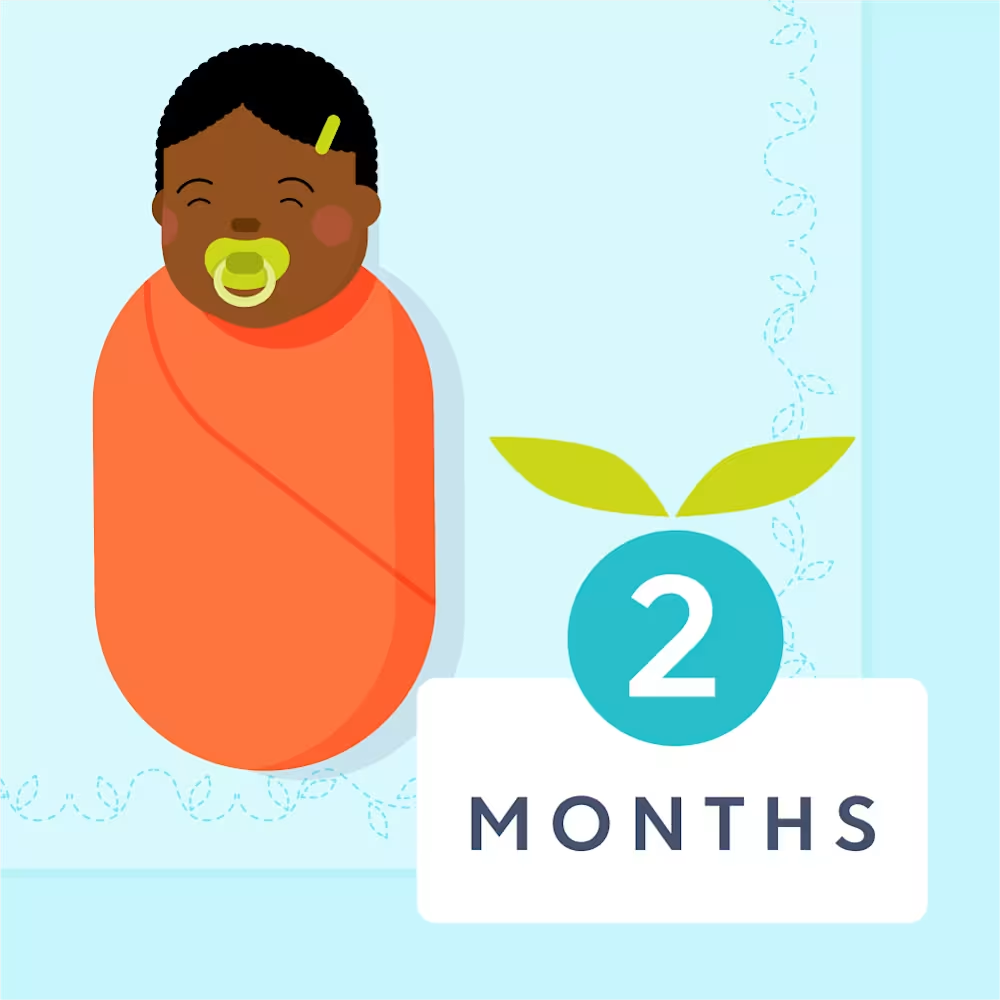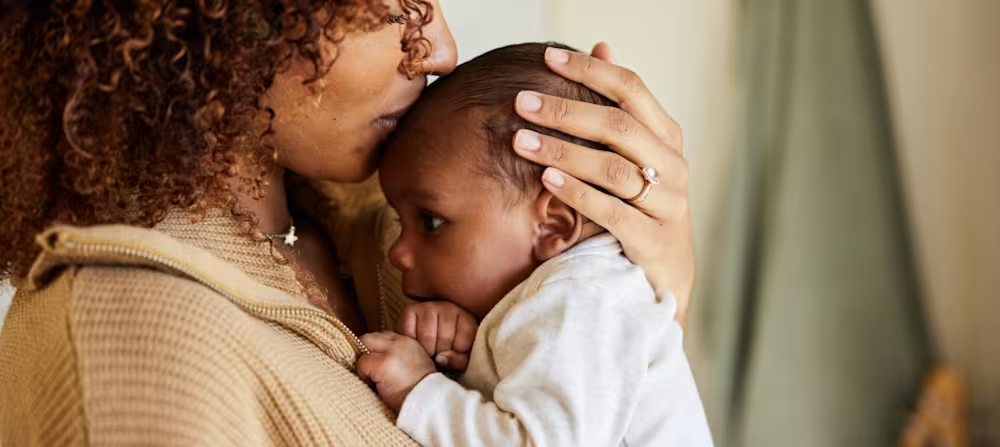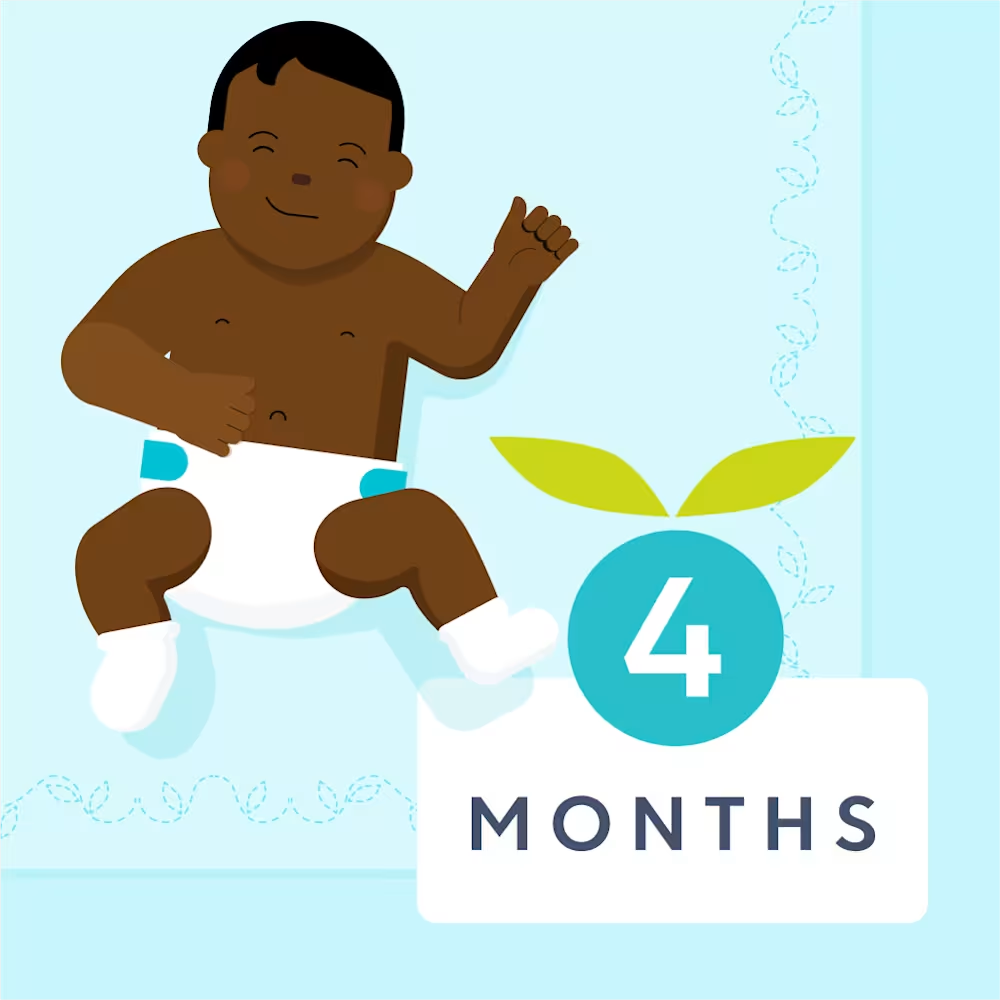Newborn sleep schedule: Do newborn babies need a sleep schedule?
Updated Dec 09, 2025

Newborns can benefit from routines, but we don’t recommend following a strict schedule until they’re older. There’s a lot of variability in what babies are developmentally ready for during this period, and much of the standard baby sleep wisdom doesn’t always apply to babies under 3 months old. Plus, you’ve already got a lot going on. You’re also busy feeding, nurturing, and getting to know this new little human! Let's dive into the topic of baby sleep schedule.
Can you put a newborn on a sleep schedule?
We recommend waiting until at least 6 months of age before attempting a “” schedule — that is, a schedule where sleep times are based on the clock. Before 6 months, it’s best to base sleep times on sleepy cues and wake windows.
Newborns, in particular, tend to have fairly unpredictable sleep patterns and short wake windows, so strict schedules aren’t realistic for most babies in this age group. So, there really isn't a newborn sleep schedule!
Why do we recommend waiting? The circadian rhythm regulates the timing [] of bedtime by about 2 months of age but isn’t fully developed until about 6 months old. Sleep becomes more predictable between 3 and 6 months of age, although many babies will continue to have a lot of irregularity when it comes to feeding and nap durations.
How much should a newborn sleep?
During the newborn stage we hope to see around 15.5 hours of sleep in a 24-hour period. Understand, though, that baby sleep needs can vary and there's a lot of wiggle room for what's normal and healthy. Don't lose sleep over hitting a specific number of hours. The recommended hours are just an estimate, but keeping tabs on your little one's mood and energy levels is just as important to make sure they're getting enough Zzzs.
Most babies are able to comfortably stay awake for only 30 - 90 minutes, so expect lots of daytime sleep. It’s very common to feel like all you’re doing is changing diapers and feeding your baby before it’s time for them to sleep again!
[Note: for children who were born early, we go by their adjusted age for sleep development.]
Here's a quick overview of what you may expect when it comes to newborns and sleep. Note that these figures are averages and should be used as guidelines.
Why do newborns sleep so much?
Adjusting to life outside the womb is a hard job! Sleep gives newborns a break from the stimulation of the world. It also supports brain development and all of the rapid physical growth that happens in those early weeks. Newborns typically spend about 70% of their time sleeping in the first 2 months of life [].
Newborn sleep pattern examples by weeks and months
Here’s a sample of what your newborn's day may look like in the first 3 months. Your newborn will spend most of their time in light sleep and sleep for short periods of around 30 minutes to 2 hours [] in the daytime. We can't control or predict when deep sleep will happen or how long naps will be until they’re older.
Birth - 1 month old sleep schedule (0 - 4 weeks)
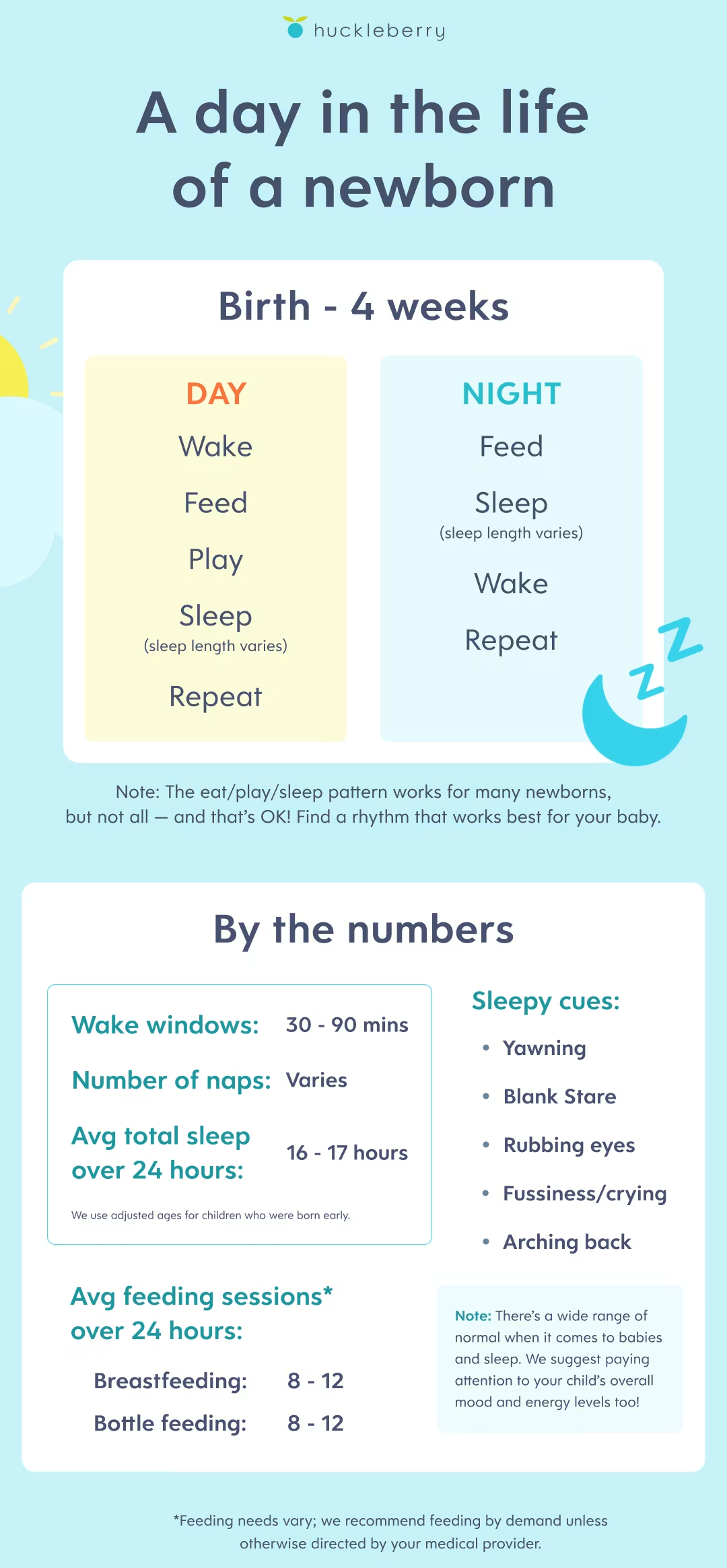
Read more on the .
1 -2 month old sleep schedule (4 - 8 weeks)
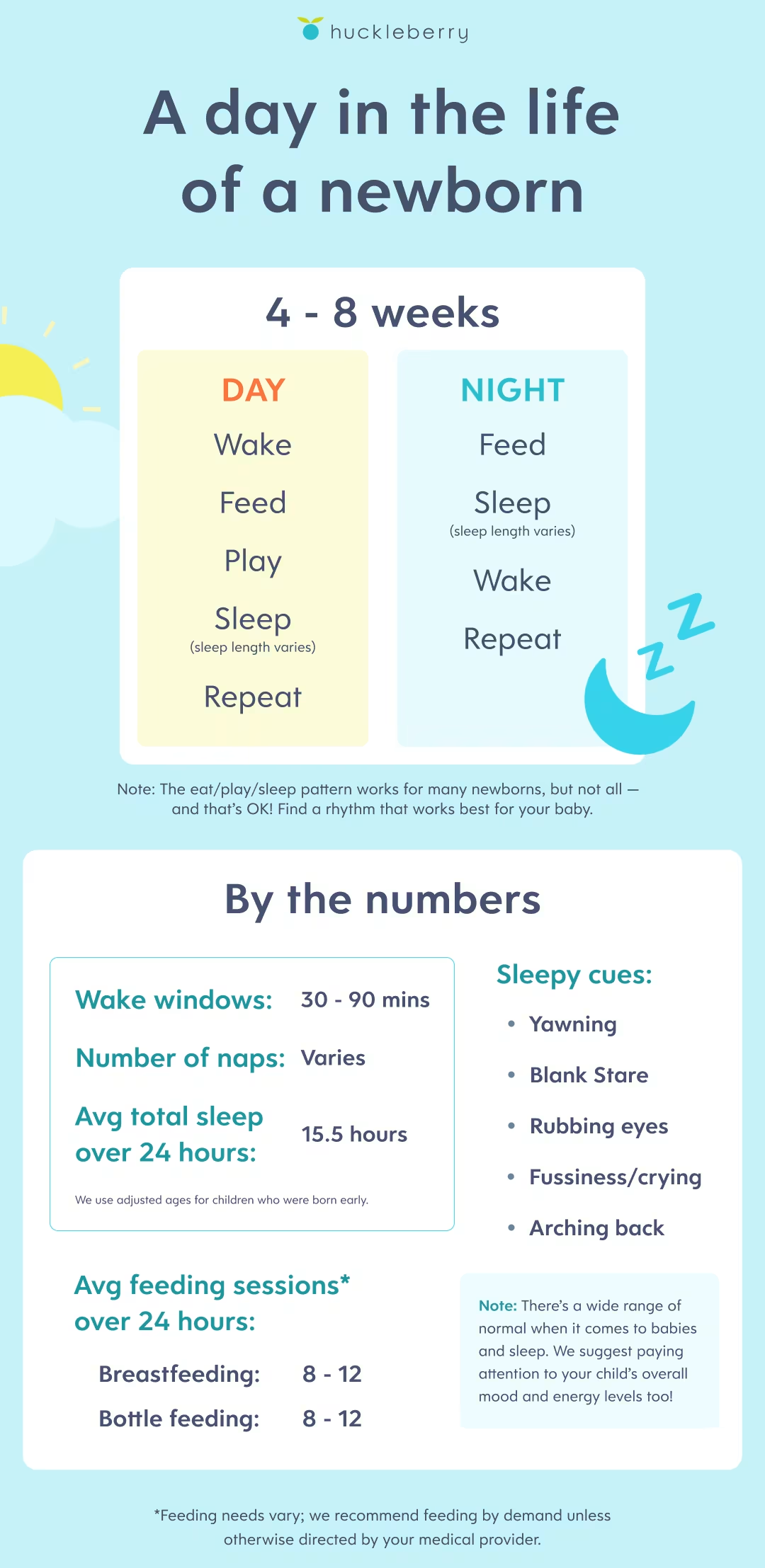
Read more on the .
2 - 3 month old sleep schedule (8 - 12 weeks)

Read more on the .
Infant sleep schedule: 3 months to 1 year
Here are samples of what your baby's sleep schedule and may look like from 3 months to 1 year old.
Newborn sleep tips to get you started
1. Help fix day/night confusion
If your baby is sleeping more during the day than at night, try limiting each individual nap to 2 hours. Light exposure [] is important for the establishment of normal circadian rhythms. Keep lights on during the day, and make it dark at night as part of your newborn sleep routine. This will help sort .
2. Know that unpredictability is common
Understand that irregular sleep patterns are normal and developmentally appropriate at this age. This will improve with time, daytime routines, and the right foundation. If you're looking for more of a "schedule" for newborns, many families find the eat/play/sleep routine helpful in the early months.
3. Pay attention to sleepy cues
Babies don’t always fall asleep when they’re tired — counterintuitive, we know! For easier naps and newborn bedtimes, observe your baby's wake windows and identify signs of sleepiness before they become too tired. These cues can include yawning, irritability, and getting a glazed/faraway look.
4. Keep an eye on wake windows
Newborns can comfortably stay awake for short periods of time. Your baby may only be able to stay awake for 30 - 45 minutes in between some naps before needing to sleep again. Other times, they may be able to remain awake for 90 minutes.
5. Follow an on-demand feeding schedule
Hungry babies have a hard time sleeping. This is a good thing! We recommend feeding your baby when they’re hungry — whether they’re breastfed or bottle fed.
6. Use noise, movement, and adjust the light
Try using rhythmic shushing and swaying to calm your fussy baby. Keep the environment comfortable, peaceful, and slightly darker when your baby becomes irritable and before sleep times.
Where should my baby sleep during the day?
Newborn babies tend to be pretty flexible about where they fall asleep — in your arms, a crib or bassinet, or even in a car seat during errands. That said, when it comes to safe sleep, the AAP recommends always placing your baby on their back on a firm, flat surface for sleep [].
What time should my newborn go to bed at night?
At this age, it's normal for babies to have very late bedtimes. Since a newborn’s schedule is irregular at this stage of development, don’t be surprised if the longest stretch of sleep starts at 10:00 PM or even much later. For the first couple of months, sleep is pretty evenly split between day and night so "bedtime" can be thought of as a time you, the caregiver, go to bed. It won't always be that way, though! By 3 - 4 months, most babies will be ready for an earlier bedtime.
If you're curious about what lies ahead in the coming month, glimpse into the future to see what you might experience once your baby is .
Share article:
Note: The content on this site is for informational purposes only and should not replace medical advice from your doctor, pediatrician, or medical professional. If you have questions or concerns, you should contact a medical professional.
8 Sources
Share article:

